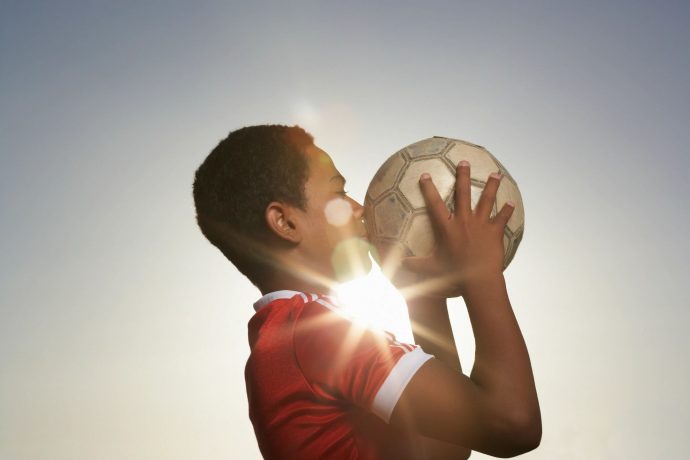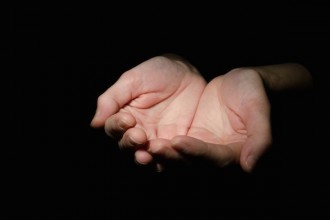My daughter is a volleyball player. And, at least in my opinion, she’s quite good. She works hard, she knows the game, she finds herself in the right place at the right time to help her team. I’m very proud of her.
And I also have to fight the temptation to be the classic sports dad.
It’s a common temptation, I think. It’s the one in which you are convinced you know better than the coach, that your child is being treated unfairly, or that your child isn’t living up to their full sports potential. It’s the one that pulls you out of the bleachers to throw your hands up in the air or want to wait to “have a word” with fans of the other team or the referee. It’s the one that makes you want to spend a few minutes after the game analyzing her play and letting her know your educated opinion on what she should or should not have done.
Maybe you know that temptation, too.
It’s moments like this in which my wife and I have taken to reminding each other of a parenting truth using a simple phrase:
“We’re not raising volleyball players.”
Of course, you can replace “volleyball players” with a number of other things:
- “We’re not raising quarterbacks.”
- “We’re not raising straight A students.”
- “We’re not raising class presidents.”
It’s not that any of those things are wrong or even bad things at all; quite the contrary. They are good things, each and everyone of them. And yet all these things are activities in which our children participate in. That alone is the pragmatic reason that we aren’t “raising volleyball players.” It’s because the astronomical odds are that these activities will eventually cease.
In all our hearts, surely we know that the chances of our children playing sports in college, much less professionally, are very, very low. Same thing with being the valedictorian in every educational system they’re part of. Same thing about always being the president until they eventually become The President. So pragmatically, it’s helpful to remember that these activities they participate in aren’t an end in themselves; they simply can’t be because they will sooner or later end.
That begs the question of what happens when they do indeed end.
More specifically, if we act like we are raising volleyball players or straight A students or pitchers, then what happens to the identities of our children when they can no longer do that thing? When they simply cannot be the person we have raised them to be?
That begs still another question:
If we aren’t raising volleyball players, then what are we raising?
Whatever the answer is, it must be something lasting. Something stable. Something sustainable. Something that is so deeply ingrained into the identities of our children that no matter what activities they participate in throughout their lives, even when those activities grow into careers, that the core of who they are still remains.
So who are we raising?
The answer is surprisingly simple and profound at the same time: We are raising people created in the image of God.
When we keep that in mind, then we come to see activities in a new light. We come to see that all those things they’re doing are not the center of who they are; they only serve to support who they are. And if that’s the case, then losing the game, or getting cut from the team, or making a B, or losing the class election might actually be the best thing for them.
Failure is a wonderful – but painful – teacher.
Parents, who are you raising up today? What is at the center of your child’s identity, as you are helping them see it? Be careful that you are not subtly replacing who they are with what they happen to be doing at a given moment.
Subscribe to MichaelKelley.co
Never miss a new post. Subscribe to receive these posts in your inbox and to receive information about new discipleship resources.






1 Comment